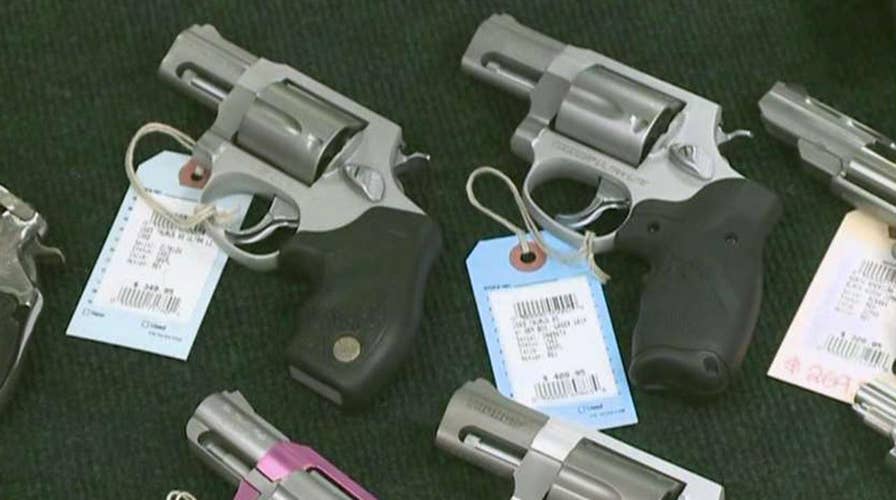House takes up bill changing conceal and carry laws
Rep. Richard Hudson and Shaneen Allen comment on 'Fox & Friends First.'
Gun owners who take pains to follow the law are always worried they'll make a mistake someday and break a law without even realizing it.
As the chief of police in Gahanna, Ohio, and as a gun owner myself, I am all too often asked about confusing gun laws, and all too often confronted with what happens when a well-intentioned person gets in trouble for something they didn't know was wrong. The laws regulating concealed carry are some of the nation's most confusing, and finally, Congress is trying to do something to change that.
Under the current system, a person who is legally allowed to carry a concealed firearm in their home state can become an unwitting criminal when they drive into another. The primary reason? The laws are varied and changing.
An Ohioan, for example, can drive into Pennsylvania with no problem. But if they pass into New York, they break the law. I've heard story after story of otherwise law-abiding people who are stopped for a traffic violation, inform the officer they are carrying, and end up spending years, and a fortune, fighting prosecution. It's a waste of everybody's time and energy.
The national Concealed Carry Reciprocity Act would end this. If passed, a person who is legal to carry concealed in their home state would be legal to carry in any other state they visited. It's a no-brainer.
There is no reason why a law-abiding person's right to defend themselves should be restricted because they crossed an invisible line.
A person does not develop violent or criminal tendencies simply because they cross a state line. There is no reason why a person trusted to carry a firearm in one state should not be trusted to carry in another.
However, threats to your personal safety can happen anywhere, anytime. A traveler is just as likely to face a threat in their home state as they are while visiting another. There is no reason why their right to defend themselves should be restricted because they crossed an invisible line.
What's more, laws that restrict carry during travel only affect the law-abiding. Criminals do not care if they aren't legally allowed to have a gun in a particular state - they carry anyway. We see this time and time again.
Law enforcement's time and energy is a valuable resource, and it must be directed toward keeping our streets safe from violence - not from arresting good people who simply didn't know better. That's why this bill is so important.
This bill does not change who is prohibited from firearm ownership - and so it does not impact public safety. Felons, the dangerously mentally ill, and domestic abusers - to name a few - are still prohibited from possessing a firearm.
Furthermore, this bill would not impact law enforcement's ability to do their job. Police officers are trained to assume that everyone they approach could be armed and dangerous. They put their lives at risk every time they stop someone, and they are trained to react accordingly to a threat. A law-abiding citizen, who is peaceful and safe, is not a threat to a law enforcement officer, carrying a legal firearm or not. In fact, many police officers carry firearms in their private lives, as well.
There are more than 16 million concealed carry permit holders in America. That number has surged in the last decade, and at the same time, violent crime has declined nearly in half. Law-abiding gun owners are not to be feared or mistrusted. We should focus our attentions on those who commit offenses against others - not those who simply wish to protect themselves.
It's more important than ever that Congress pass the Concealed Carry Reciprocity Act. After eight years of gun owners watching as their second amendment rights were constantly under attack, now is the time to protect them.
I fully support the Concealed Carry Reciprocity Act, and encourage all gun owners to do the same. I also encourage voters to contact their representatives and let them know how important this bill is. It's time for Congress to protect our rights, not look toward restricting them.

